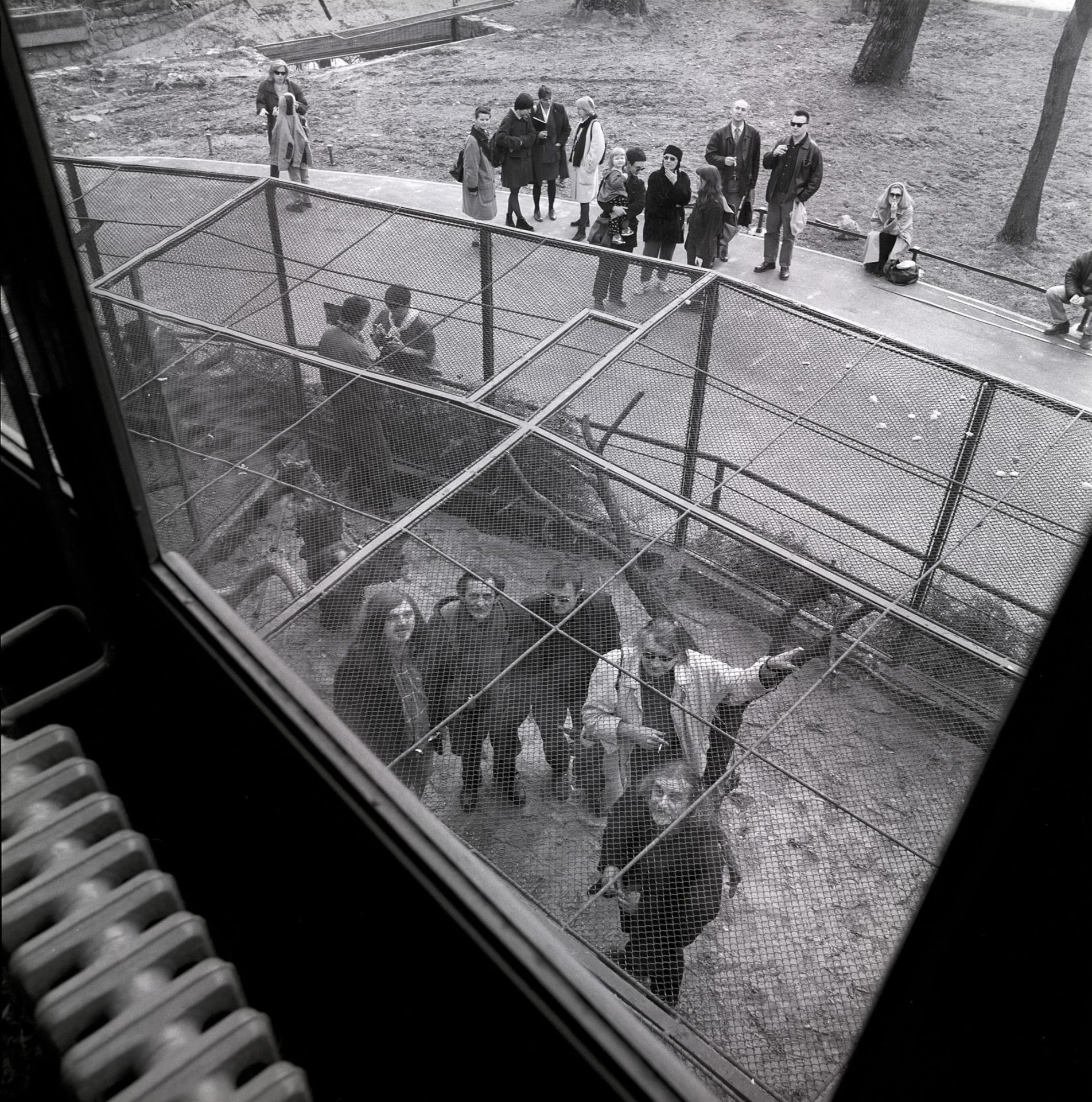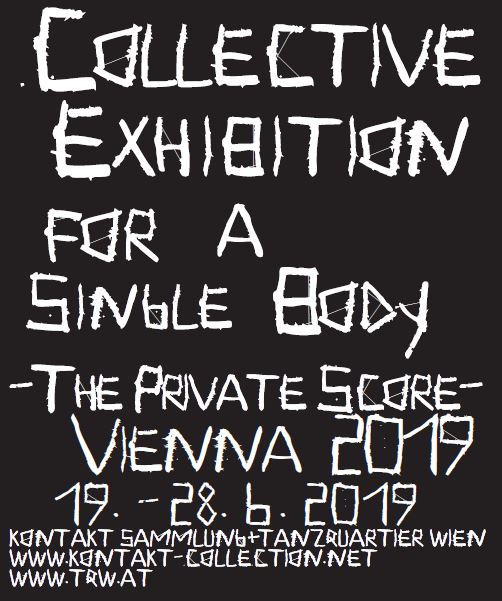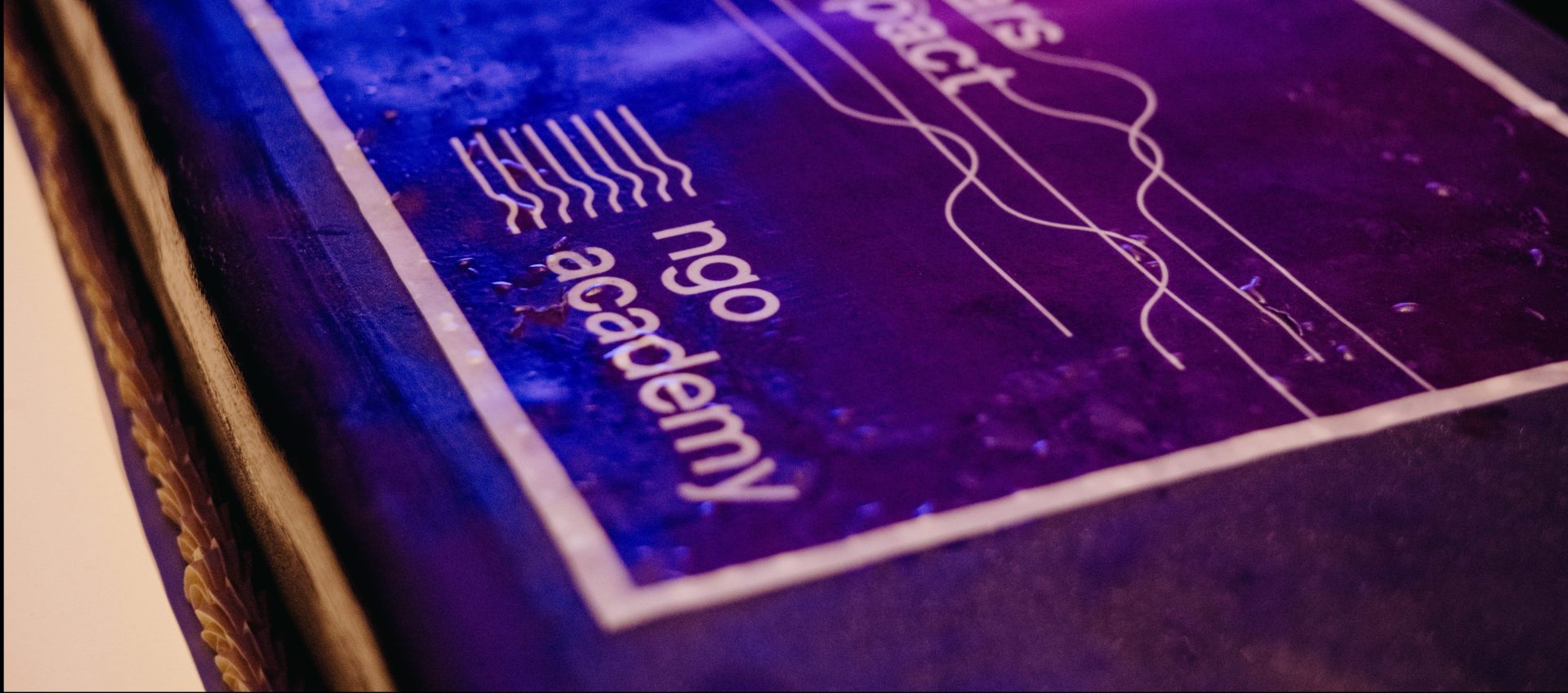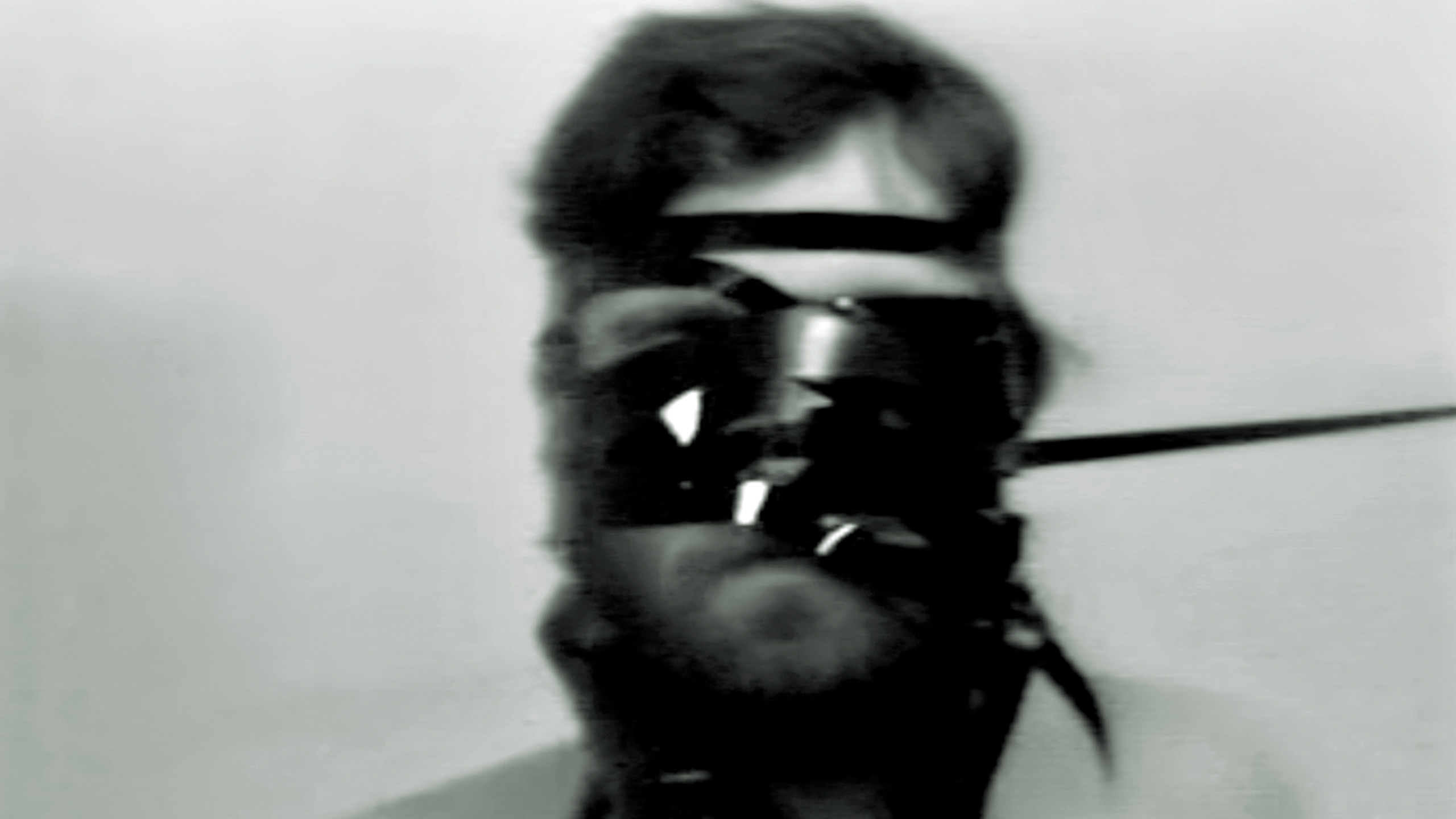Event
June 25, 2019
Reading Time: 5'

Parallax Views
June 25, 2019, 14:00
Tanzquartier Wien
This event takes place in the framework of the exhibition and performance project »Collective Exhibition for a Single Body – The Private Score – Vienna 2019» and is a collaboration between Kontakt Collection and Tanzquartier Wien.
In her article The cultural logic of the museum in late capitalism, Rosalind Krauss attempts to formulate with regard to the development in the late 1980s of the Guggenheim’s private museum strategy a designation for the museum of the biopolitical era and the discursive change it implies, »from the passage from diachrony to synchrony. The encyclopedic museum intended to tell a story, unfolding before its visitor a particular version of the history of art. The synchronic museum (…) would renounce history in the name of a kind of intensity of experience, an aesthetic force that has lost its temporal (historical) acuity, since it is now radically spatial.»
A device according to Giorgio Agamben is a heterogeneous set comprising speeches, institutions, architectural arrangements, administrative measures, as well as the unspoken. What Rosalind Krauss manages to say in her text about the new museum system of the biopolitical reign, whose private foundation embodies the current model, is that it no longer acts solely through the production of the subject but rather by de-subjectivization, it describes this new subject as fragmented and technologized.
What strategy should we adopt in our daily activities with these devices? This is the question posed by Agamben and Krauss, which could be answered through the new position occupied by Suzanne Pagé (at that time director of a French public museum) who in 1990 at the introduction of the abovementioned essay presents to the author an exhibition of minimalist works from the Panza collection at the Museum of Modern Art of the City of Paris and who today directs the Louis Vuitton Foundation. Krauss concludes her text by predicting that the museum of the biopolitical era will have to deal with the mass markets rather than with the art markets, and with the experience of simulacra rather than the immediacy of aesthetics. This analysis takes on a prophetic character for the former curator of the public museum, manager of the art foundation of today’s largest global luxury goods manufacturer. What Tom Krens (Guggenheim director) set up in the 1990s became widespread and for example realized from 2003 in France thanks to the Aillagon law, named after the culture minister who set it up and who now runs the Pinault Collection – of another luxury giant – that will soon be installed in the center of Paris in the former stock exchange market.
Therefore, to corroborate the change in open government in the biopolitical era, the private foundation of contemporary art replaces the model of the public encyclopedic museum of a closed disciplinary society, which is rendered obsolete. The device in the biopolitical era reconfigures the territory of the categories that founded the previous period, such as »General interest» and the »Common good.» There is no more homogeneous political time; the partitions of the free market distribute a completely different logic of territory. The questions addressed by this discussion developed by public or private institutions, companies or foundations, is to what extent these devices allow or prevent the use of time, spaces, places, means, investigations, memory, fantasies, morals and history?
The Kontakt Collection takes the initiative to open the debate with a series of conversations.
By looking at the private Viennese collections Kontakt, Generali and TBA 21, which are largely based on or include art works of artists from former Eastern Europe, who were submitted to another valuation (communism) for the same terminology (private and public interest), the series of publicly held conversations will try to question the conversion process from private or privacy to the common and the collective and the polysemy of theses notions in echo with Collective Exhibition for a Single Body, a performance exhibition that will be presented in the former exhibition space of the Generali Foundation that became a branch of the Lidl food market. The recent reversibility of use from art space to commercial area of this location situated in the center of the city in contrast with what the liberal era of the 1990s was celebrating with the reconverted suburban factories into cultural spaces will maybe allow us to better understand the new Neoliberal Plan in which we are.

Programme
Tuesday, 25 June 2019, 2-7 pm
Welcome
Bettina Kogler and Kathrin Rhomberg
Introduction
Pierre Bal-Blanc and Manuel Pelmuş
Conversation I
Transformation and Privatization of the City Centers
Christian Höller (statement)
Jochen Becker in conversation with Georg Schöllhammer
Conversation II
Anatomy of Transformation
Sabine Breitwieser (statement)
András Pálffy in conversation with Otto Kapfinger
Break
Conversation III
Portrait of a Woman with Institution
Silvia Eiblmayr (statement)
Anna Daučíková in conversation with Adam Szymczyk
Conversation IV
From Private or Privacy to the Common and the Collective
Pierre Bal-Blanc (statement)
Daniela Zyman in conversation with Guillaume Maraud
Cover picture: Boris Demur, Mladen Stilinovic, Sven Stilinovic, Zeljko Jerman and Vlado Martek (action in occasion of shooting of the TV film about the Group of Six Artists), Zoo Zagreb, 1999. Photo: © Boris Cvjetanovic, Courtesy: Boris Cvjetanovic



